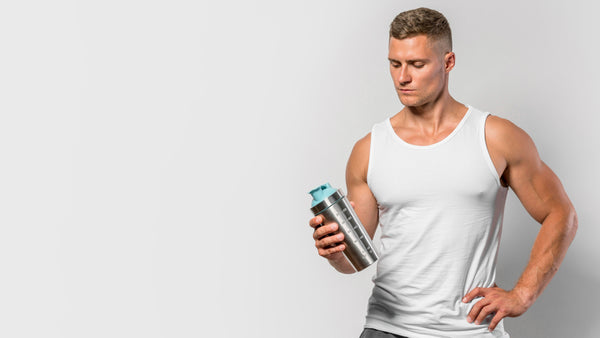Hydrated Skin is Healthy Skin: The Importance of Skin Hydration in Your Daily Routine
Imagine your skin as a desert. Without adequate hydration, it tends to become cracked, dry, and lifeless. Now, picture the same skin as a thriving garden. With sufficient water, it is lush, vibrant, and glowing. Skin hydration works similarly; it’s the lifeline that keeps your skin healthy and radiant. While we often hear that "hydrated skin is happy skin," studies show that up to 40% of the population suffers from dehydrated skin, contributing to issues like premature ageing, sensitivity, and dullness.
This blog will demystify the crucial difference between hydration and moisture, identify the warning signs of dehydrated skin, and provide practical tips for maintaining hydration in your daily routine.
Understanding Skin Hydration: The Difference Between Hydration and Moisture
Although hydration and moisture are often used interchangeably, they serve different purposes in skin care. To clarify:
- Hydration: This refers to the water content within your skin cells, which helps to maintain skin elasticity and plumpness. Hydrated skin looks supple and radiant because it has a balanced water level. Products like serums and toners are designed to penetrate deeper layers of the skin to provide hydration. Without this essential water, your skin loses its resilience and may become tight or flaky.
- Moisture: While hydration is about water, moisture refers to the oil content in your skin, which creates a protective barrier to lock in hydration. Moisturisers work on the surface level, sealing the skin to prevent water loss. Without sufficient moisture, even well-hydrated skin can become dry and irritated.
Signs of Dehydrated Skin: How Dehydration Impacts Skin Health
Dehydrated skin can be tricky to identify because it can occur in any skin type—yes, even oily skin. Here are some common signs to watch for:
- Dullness: One of the first indicators of dehydrated skin is a lack of radiance. Your complexion may look lacklustre because dehydrated skin cannot reflect light effectively.
- Tightness: Dehydrated skin often feels tight and uncomfortable, especially after cleansing. This sensation is your skin’s way of signalling a lack of water.
- Flakiness: Without proper hydration, your skin may start to flake or develop rough patches, leading to an uneven texture.
- Increased Sensitivity: Dehydration compromises the skin barrier, making it more susceptible to irritation and sensitivity.
- Fine Lines: Lack of hydration can exaggerate the appearance of fine lines and wrinkles, as your skin loses its plumpness.
Dehydrated skin is more than just a cosmetic issue; it can impair your skin's natural barrier, leading to long-term damage and premature ageing.
Daily Routine Essentials: Hydrating Products and Lifestyle Tips
Maintaining skin hydration is not just about what products you use but also about the lifestyle choices you make. Here’s a comprehensive routine to ensure your skin remains hydrated throughout the day:
Lifestyle Tips
- Drink Plenty of Water: Staying hydrated from the inside is just as important as external hydration. Aim for at least 8 glasses of water per day, adjusting for your activity level and environment.
- Humidifiers: If you live in a dry climate or spend a lot of time in air-conditioned environments, invest in a humidifier. This can add moisture to the air, preventing your skin from drying out.
- Limit Hot Showers: Prolonged exposure to hot water can strip your skin of its natural oils, leading to dehydration. Opt for lukewarm showers instead.
- Balanced Diet: Foods high in water content, such as cucumbers, watermelon, and leafy greens, contribute to overall hydration. Additionally, omega-3 fatty acids found in fish and flaxseed oil can improve skin hydration by supporting the lipid barrier.
Long-Term Benefits: How Consistent Hydration Leads to Healthier, Youthful-Looking Skin
Consistently hydrating your skin has long-term benefits and not just having a glowing complexion. Proper hydration keeps the skin cells functioning optimally, allowing for better turnover and regeneration. Over time, well-hydrated skin is less prone to wrinkles, sagging, and discolouration.
Additionally, well-hydrated skin is better equipped to defend against environmental stressors such as pollution and UV damage. A robust skin barrier prevents the penetration of harmful substances, further contributing to long-term skin health.
Conclusion
Hydration is the foundation of healthy, glowing skin. By understanding the difference between hydration and moisture, identifying the signs of dehydrated skin, and incorporating skin-hydrating products and lifestyle habits into your routine, you can ensure that your skin remains elastic, radiant, and youthful over time. Remember, consistent hydration is not just about short-term beauty; it's an investment in your skin’s future health.
Hydrate your skin today, and it will thank you tomorrow.
Why is skin hydration important?
Skin hydration is essential for maintaining elasticity, radiance, and a healthy skin barrier, preventing premature ageing and damage.
What are the signs of dehydrated skin?
Dehydrated skin shows signs like dullness, tightness, flakiness, sensitivity, and exaggerated fine lines.
What role does diet play in skin hydration?
A balanced diet rich in water-dense foods and omega-3 fatty acids supports internal hydration and a strong skin barrier.
What are some common mistakes that can lead to dehydrated skin?
Common mistakes include over-exfoliation, using harsh products, hot showers, and neglecting adequate water intake.

























